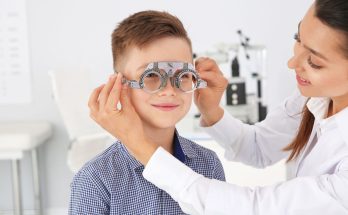Humans are built with complex systems and body functions that enable them to be a social being. The way humans communicate with each other can be verbal or non-verbal. Verbal communication being the most significant and effective way of exchanging messages between humans is certainly important for humans in daily life. Health screening in children or young ages can help detect any problems relating to communication skills earlier and help them to improve this skill or be provided with support. Aphasia is one of the disorders affecting the way a person communicates.
Aphasia is defined as a disorder resulting from damage to parts of the brain that plays a vital role in language. Aphasia may develop suddenly after a stroke or head injury but in some cases, it may evolve slowly due to chronic disease such as progressive neurological disease or brain tumour. Aphasia may affect people across all walks of life but most common in those in middle-aged or older people. Aphasia mainly affects 4 ways people comprehend and utilise language skills. These 4 ways are listening, reading, speaking, writing or typing. Simply said, aphasia revolves around these 4 ways and a person may have one or more types of aphasia at a time.
As mentioned, aphasia is caused by damage to brain areas that function as language areas. In stroke, a blood clot or leakage from blood vessels hinders blood flow in the brain. This disruption to normal blood supply leads to death of brain cells as these cells are unable to live due to lack of oxygen and nutrients to survive. For tumour cases, the tumour size might have caused blockage and disturbance to the blood flow of the language area in the brain. While in infection, aphasia may be caused by swelling that directly impacts the brain’s language centres.
There are several types of aphasia and its symptoms will be dependent on the types. Below are examples of common aphasia diagnosed in clinical settings:
1) Broca’s aphasia –
People with this type of aphasia may understand speech and know what they want to say as they are able to understand the speech of others but have difficulties to speak. This causes them to speak short phrases that bring meanings and often eliminate words such as “is”, “the” and “and” in attempt to speak as speaking themselves requires them with great effort. People with Broca aphasia are associated with impairment in motor movement causing weakness or paralysis of both upper and lower limb.
2) Wernicke’s aphasia –
Difficulty to understand what other people are saying and often speak in long and complete sentences that do not bring meaning. Sometimes they even add unnecessary words or made-up new words.
3) Global aphasia –
People with global aphasia have severe communication difficulties that lead to difficulties in comprehending language and speaking.
Since living with aphasia can be debilitating, knowing the possibility of recovering from it can be great help for both patients and caregivers to have realistic expectations of what can be done or what support available from healthcare providers. In essence, aphasia recovery largely depends on the causes or medical conditions underlying it. Some cases of aphasia may actually recover completely even without any given treatments in the first few months but unfortunately in most cases, aphasia can only be helped with treatments such as speech-language therapy. While most aphasia can be improved within a year, if aphasia lasts more than a year, it is likely any more recovery can be expected. Patients with global aphasia usually have poorer recovery compared to Broca’s and Wernicke’s aphasia.
If you or a person you know is affected by aphasia, it can be quite frustrating to live with but with perseverance and hope, quality of life can be improved gradually with help from healthcare professionals. Know about out Hajj vaccination package




